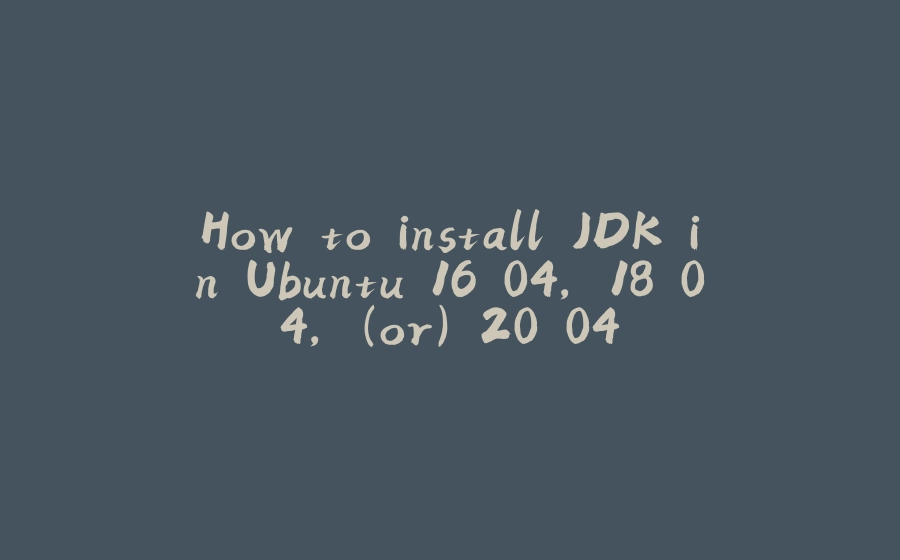Step 1: Update Ubuntu
$ sudo apt-get update
step 2: Download java jdk file
[https://www.oracle.com/java/technologies/javase-jdk14-downloads.html]
Go and Click : Linux compressed archive jdk-14.0.1_linux-x64_bin.tar.gz
step 3: Go to your downloads path:
$ cd Downloads
step 4: find your jdk fie and run this command to extract the jdk file
$ ls
$ tar -zxvf jdk-14.0.1_linux-x64_bin.tar.gz
step 5: Go to library file and here we creating java directory
$ cd /usr/lib/
$ sudo mkdir java
step 6: After creating java file move to your jdk file into java directory
$ cd ~/Downloads/
$ sudo mv jdk-14.0.1/ /usr/lib/java
step 7: Next go to java directory here we are successfully moved jdk file into java directory
$ cd /usr/lib/java/
$ ls
out put: jdk-14.0.1
$ cd jdk-14.0.1
step 8: Next run bellow the commands one by one :
Note: 14.0.1 is jdk version if in case u r download bellow version like 12.0.1 plz replace it
$ sudo update-alternatives –install “/usr/bin/java” “java” “/usr/lib/java/jdk-14.0.1/bin/java” 1
$ sudo update-alternatives –install “/usr/bin/javac” “javac” “/usr/lib/java/jdk-14.0.1/bin/javac”
$ sudo update-alternatives –install “/usr/bin/javaws” “javaws” “/usr/lib/java/jdk-14.0.1/bin/javaws” 1
step 9: Update the JAVA_HOME in your ~/.bashrc
$ sudo gedit ~/.bashrc
output:
~/.bashrc: executed by bash(1) for non-login shells.
see /usr/share/doc/bash/examples/startup-files (in the package bash-doc)
for examples
If not running interactively, don’t do anything…
like this.. go to file last column and add the java home
step 10: Add Java Home here
#JAVA HOME directory setup
export JAVA_HOME=/usr/lib/java/jdk-14.0.1
export PATH=”$PATH:$JAVA_HOME/bin”
click : save
step 11: Finally we are install jdk successfully check it
$ javac
$ java
$ java -version
out put:
java version “14.0.1” 2020-04-14
Java(TM) SE Runtime Environment (build 14.0.1+7)
Java HotSpot(TM) 64-Bit Server VM (build 14.0.1+7, mixed mode, sharing)























暂无评论内容